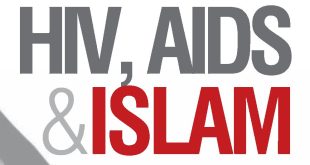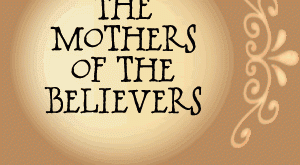
Editor’s note: In Part 1 and Part 2 of this Series, the author has explored some significant features of the formation of Islamic identities in Africa.. Here, he continues to trace and study other important features.
Based on this accurate system, we find that the name – for Basari tribes and the likes – bears a constant relation to the culture and the community, and that it carries a direct message about its holder, determining their identity along with its social dimensions.
Hence, through a person’s name, we can determine their gender, order (among their siblings) and perhaps the number of their siblings, the age category to which they belong, and possibly the circumstances of their birth, its time, place and day, and the part of that day, day or night.
This confirms that the name carries multi-dimensioned communicative messages, that it has a close link to African anthropology, and that naming individuals is not a private issue of the parents.
Besides, it is employed in preserving harmony within the community, and avoiding problems threatening its survival.
Hence, the Islamic impact manifests clearly in the denotative shift that occurred to a number of these values, from the narrow, limited conventional designations to its profound and broad Islamic denotations.
That is why we deem that elaboration on such issue to prove that any form of manipulation of this system presages the demolition of much of the social bases and tribal beliefs, and also to the effacement of the identity of the name holder, from the tribal perspective.
This is surely what had befallen the naming system in some tribes that embraced Islam in west Africa, as the scholar or ‘karamogo’ superseded the tribe’s chief in determining the names of newborns, and Islamic festivals supplanted conventional occasions that would have bearings on determining the newborn’s name.
Besides, some occasions violating Islamic teachings were abolished.
Thus, African Muslim is known, first, by their name consisting of one of the names of Almighty Allah I,or the name of a prophet or a messenger, of a righteous person, be that person male or female, of a Companion or a Tabi`i (belonging to the generation succeeding that of the Companions), or of an Islamic figure.
Third: The Denotations of Names of Towns and Geographical Sites
This phenomenon is not limited to personal names alone, but it rather extends to the names of towns and geographical sites, based on African Muslims’ desire to link such sites by name to the cradle of the revelation or the Arabian Peninsula.
We have, for instance, a series of “Madinah” names in most African countries, most famous of which is that “Madinah” name, which superseded the ancient “Timbi” in Guinea, at the hand of scholar, Shaykh “Alfa Yero”.
We also have Kerewane towns in Senegal and Guinea, named after the al-Qayrawan (Kairouan) city. Besides, there is a district in modern Mali called “Bagadaji”, named after Baghdad, another called “Hadma Allah” in Bamako, a third called “Dar As-Salam” in Bouaké city in Côte d'Ivoire, a fourth called “Masira” in Guinea, a fifth “Ta’ifa” in Senegal, a sixth called “Sarruja”, named after Saruj, the city to which Abu Yazid al-Sarruji, the hero of the Al-Hariri’s Maqamat, belongs, etc.
Fourth: Adopting the Hijri Calendar
 Likewise, the Islamic impact manifested in many aspects of the African identity, the details of which fall beyond the scope of the present article.
Likewise, the Islamic impact manifested in many aspects of the African identity, the details of which fall beyond the scope of the present article.
Yet, it can briefly be noted that it involved adopting the Islamic annual calendar, linking all the walks of their life to the lunar calendar, abandoning the formerly prevalent idolatrous feasts relating to the solar calendar, borrowing the names of Arabic days and months – by most of the tribes -, and linking the timing vocabulary toe Islamic rituals, like Suba (subh meaning morning), waliha-tele (salat-ul-duha meaning supererogatory forenoon prayer), Sali-fana (salat-ul-zhuhr meaning noon prayer), La`ansara (salat-ul-`asr meaning afternoon prayer), all according to the Manding language. The applies in costumes, arts and literatures.
fth: The Impact of Islam on Muslim Groups in Terms of Their Moral and Cultural Values
We can undoubtedly affirm the impossibility of having any manifestation of individual or communal Muslim identity (in religion, history, language and culture) that is not affected by Islam in Africa.
Perhaps tracing the Islamic impact in two cultural manifestations among the Fulbe (the Pulaaku concept), on one part, and among the Hausa (Mutumin Kirki concept), on the other, clarifies the extent of profound Islamic influence on these groups in terms of their culture and their vision of the world, and the extent of their Islamic identity formation based on this special vision.
1. The Fulani and the Pulaaku Concept:
For the Fulbe/Fulani tribes, the Pulaaku is a complex social concept that drew the attention of ethnologists and sociologists. Pulaaku is a verbal noun derived from the Fulani noun “Pulaa + Ku”, which is similar to the Arabic gerund of profession in (the Arabic) “insaani + yyah (human + ity)”.
It is briefly defined by Kirk Greene as “the Fulani way [of life]”, while VerEecke deems that it is a concept loaded with intersecting valences, though it generally means “view of the world” for the Fulanis, and its function is to mold a pattern for ideal social values.
Researcher Ogawa, however, viewed that this concept is not simply a value system per se, but is rather a system of symbols molded through a variant relation with the non-Fulani “other”.
In VerEecke’s words, the Pulaaku is “the boundaries differentiating between the Fulbe and the non-Fulbe”. The Pulaaku concept is thus a group of noble human values embraced by the Fulani people and adopted as a way of life that distinguishes them – they thus believe – from others.
Due to the multiplicity of the Fulani people’s habitations all over the Sub-Saharan Africa, and the contrastive views of researches on this concept, researcher Stenning resorted to the identification of four basic constituent elements of the Pulaaku concept:
First: The Fulfulde language, meaning that Fula language
Second: Humbleness and moderation (Seemteende)
Third: Patience and fortitude (munyal)
Fourth: Wisdom and rationality (hakkiilo)
These values, though human values, are considered as a specificity by the Fulani people. It is also viewed as an essential marker of their identity that affects their way of thinking, their behavior and their collective view of the world.
As for the relation between Pulaaku and Islam, it primarily appears in the point that the mentioned values are at the heart of Islamic values and among the prerequisites of a true Muslim character.
It appears next in the “Juulde” concept, which literally means “prayer”, and is used by the Fulbe in reference to devoutness. It is also a necessary constituent of the ideal man concept among the Fulbe.
Regarding the impact and role of Islam in pruning the Pulaaku concept, especially in terms of renouncing the manifest sensory markers that the Fulani allege to be constituents of their identity, like costumes, and sheer cultural and social manifestations, researcher Ogawa illustrated it saying that “the more the Fulani delved deep into Islam, the farther they get from adherence to the Pulaaku view, as they determine their identity as being part of the great Islamic Ummah”.
Researcher VerEecke reached the same conclusion in her study about the Fulani of the Admaw region in Cameron, stating that Islam has steadily become the most important moral authority and ethnic marker for those people, surpassing the Pulaaku thought.
This case is not limited only to the Fulani who have deep-rooted Islamic affiliation. Rather, it exists among the Fulani people having relatively less stable Islamic affiliation, like the pastoral Mobororo Fulani, as is affirmed by researcher Burnham, who says that the Fulani is that region consider “diina” (meaning Islam) a necessary constituent of the Pulaaku concept.
Researcher Franz went as further as to claim that if the vigorous Arab Islamic culture keeps spreading, then the distinctive characteristics and the thought now called Pulaaku is in its way to extinction and disappearance, so that it would be reformed anew in light of a universal and broader Islamic identity.
Accordingly, there is a close organic relation between Islam and the “view of the world” concept for the Fulani, since there it is meaningless to search for a Fulani identity beyond the Islamic circle.
2. The “Mutumin Kirki” or “Good Man” Concept in the Hausa Community
The “Mutumin Kirki” or “Good Man” concept is a manifestation of the Islamic influence on the Hausa people’s social vision, and on their view of the ideal man embodying the Hausa identity.
Such fact is asserted by the social researcher, Professor Kirk-Greene, pioneering researcher in the field, who noted that “the good man in Hausa society today is almost by definition, the good man in Islam”.
As for the characteristics of a good man, they are identified by Greene on the basis of a large collection of popular literary and historical texts, as well as social studies, laying down a group of moral values as characteristics of the good man. These characteristics run as follows:
– “Gaskiya, Amana” or truthfulness and trustworthiness, which constitute the infrastructure of every social behavior among the Hausa, while its opposite, “cin amana” or betrayal of trust, is among the grave moral transgression in the Hausa community.
– “Karamci” or generosity and openhandedness: Greene attributed the Hausa’s high reverence for the value of generosity and openhandedness to the nature of their social activity, which is based on agriculture and trade.
For, the risk implied in these two activities is high, considering sudden slump, poor harvest, unforeseen droughts, and the like of exigent circumstances that may turn man’s upside down overnight.
Therefore, genuine consolation under such circumstance is necessary among the community members. Here, Greene indicates that this value has considerably swept the Hausa, so much so that the concept of “mai-haira” (open generosity) has no regulating limits for them, and it is nearer to prodigality than to frugality. To Be Continued…
Source : http://www.onislam.net
Post Disclaimer | Support Us
Support Us
The sailanmuslim.com web site entirely supported by individual donors and well wishers. If you regularly visit this site and wish to show your appreciation, or if you wish to see further development of sailanmuslim.com, please donate us
IMPORTANT : All content hosted on sailanmuslim.com is solely for non-commercial purposes and with the permission of original copyright holders. Any other use of the hosted content, such as for financial gain, requires express approval from the copyright owners.
 Sri lanka Muslims Web Portal Sri Lanka Muslims News Center
Sri lanka Muslims Web Portal Sri Lanka Muslims News Center
 Donate
Donate


